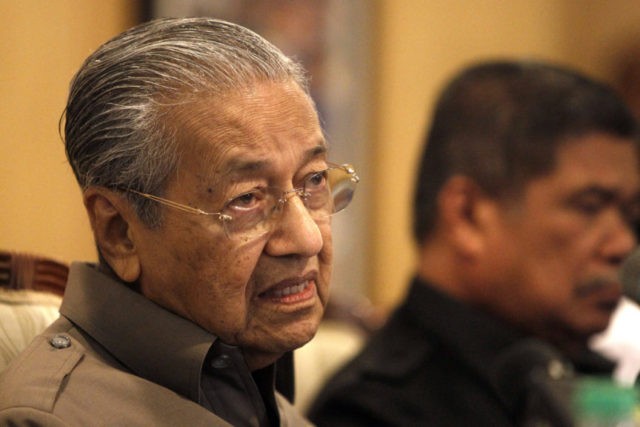Malaysian Foreign Minister Saifuddin Abdullah said on Wednesday that the incoming government of Prime Minister Mahathir Mohamad intends to take a firmer stand against Chinese aggression in the South China Sea.
Saifuddin said Mahathir’s administration wants China to know that it will be “more firm, more serious” in handling maritime disputes, and wants China to cease militarizing disputed islands in the South China Sea.
The foreign minister added that Malaysia has no plans to send warships to the South China Sea, but would “reevaluate the situation” if negotiations to establish a Code of Conduct for the region fail to curb Chinese aggression.
The Associated Press noted this would represent a significant change in position from Mohamad’s predecessor and former protege Najib Razak, who is currently busy answering tough questions about $4.5 billion that vanished from the massive 1MDB development fund. Razak’s approach to China was much more accommodating:
Malaysia’s previous government rarely criticizes China, even though Chinese coast guard ships have sailed near Malaysia’s waters. In the Spratly island chain, China has constructed seven man-made islands and equipped them with runways, hangers, radar and missile stations, further cementing its vast territorial claims in the busy waterway.
Saifuddin said Southeast Asian foreign ministers meeting in Singapore next week will seek to accelerate negotiations for a new code of conduct to ensure peace in the South China Sea, which is claimed by China almost in its entirety. Vietnam, Brunei, Malaysia, the Philippines and Taiwan all dispute Beijing’s holdings.
All parties should exercise self-restraint and any actions must be based on international law, Saifuddin said.
Prime Minister Mohamed, widely described as a remarkably active executive despite being 92 years of age, has been pushing back against Chinese imperialism on a number of fronts, including a freeze on multi-billion-dollar projects connected to China’s “Belt and Road” infrastructure initiative. He scuttled a $20 billion Chinese railway project earlier this month. Two Chinese companies associated with the canceled projects were then raided by Malaysia’s anti-corruption police.
Skeptics who doubted Malaysia would jeopardize its economic relationship with China, especially after a 700 percent increase in Chinese investment over the past decade, are now wondering just how far Mohamed is willing to go.
The prime minister is due to visit China soon, possibly as early as the middle of August, to discuss trade and security issues. Observers believe Mohamed intends to drive a much harder bargain on the Belt and Road deals Razak negotiated and wishes to show Beijing that he means business.

COMMENTS
Please let us know if you're having issues with commenting.